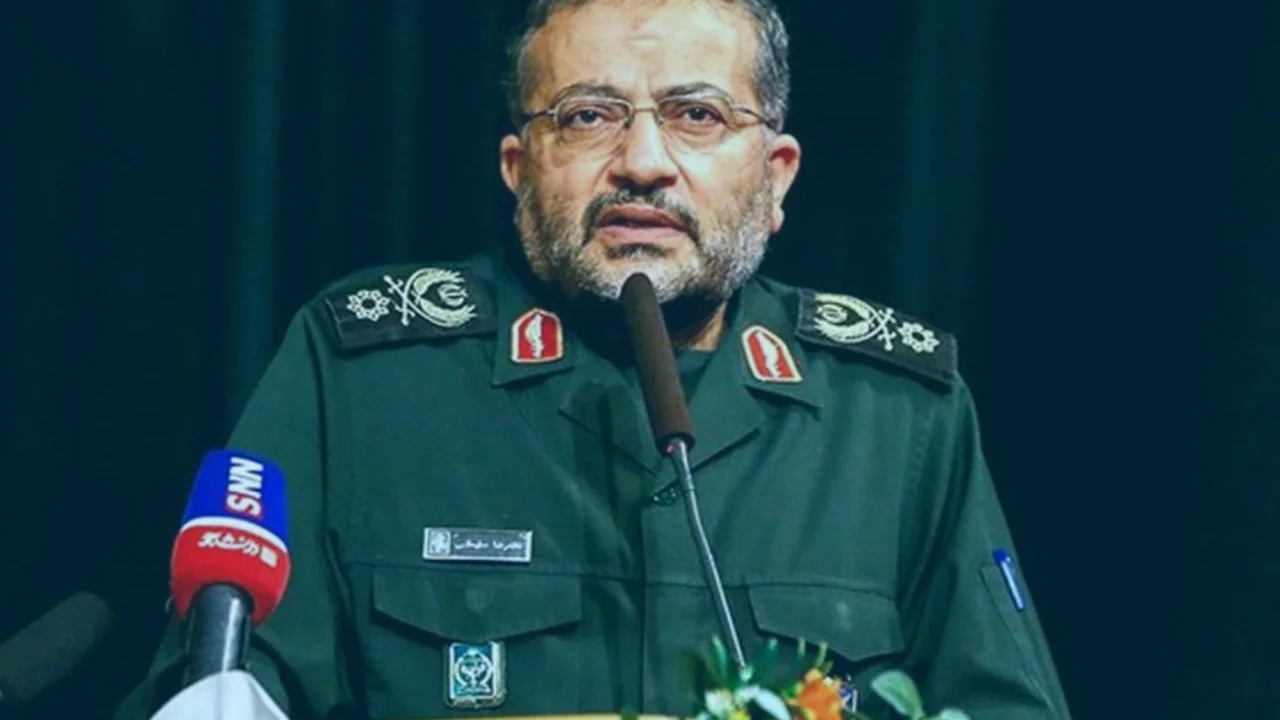Basij and “Jihadi” Groups Get Significant Share of General Budget
At least 5.7 trillion Tomans (about $105.3 million, at an exchange rateof 54,100 Tomans/$1) of state funds have been allocated to the Basij organization, Basij industries, and the “jihadi” groups associated with the paramilitary grouping, according to Iran Open Data’s analysis of the 1402 (2023-2024) budget. These entities, under the guise of volunteer activities, are also benefiting from other state-sponsored advantages.
Chart link
The 1402 budget bill includes an allocation of 2.826 trillion Tomans (about $52.2 million) for the Basij Organization, listed under the specific row number 111,313 in the budget credits table for executive bodies. In addition to this, the Basij organizations have two other fixed rows in the annual budget: Row 111,382, titled "Strengthening the Defense and Security Infrastructure of the Basij," and row 111,390, titled "Basij Development," which together are allocated 376 billion Tomans (about $6.9 million) in the 1402 budget bill.
However, outside of the fixed budget lines, 1.092 trillion Tomans ($20 million) have also been allocated to the Basij organizations and "Jihadi" groups in this year's miscellaneous budget, one with the title of "poverty alleviation" worth 90 billion Tomans ($1.6 million), and the other with the title of "construction projects of Jihadi groups" worth 1.002 trillion Tomans (about $18.5 million).
The allocated financial resources for the Basij are not limited to the aforementioned items. The numbers and figures of the budget rows may change or be added during the bill approval process, as the relevant tables had not yet been at the time of the writing of this report. However, a review of the text and provisions of the 1402 budget bill shows that, in addition to fixed budget rows, other benefits have been allocated to the Basij.
Chart Link
Basij and jihadist groups are specifically mentioned in six clauses of the 20-item budget notes for this year.
1-The first item in paragraph "K" of article 1 states that the Ministry of Oil is required to allocate the equivalent of 7% of the total 20 trillion rials ($3.6 million) of free bitumen to Basij industries. This paragraph mentions the bitumen is intended to be used for the "asphalt of inter-farm roads, law enforcement bases, Basij resistance bases, martyrs' cemeteries, hunting bases, military barracks and residential complexes, and military and administrative complexes." The value of this paragraph for the Basij is equivalent to 1.4 trillion Tomans ($25.8 million) of financial resources.
2- In paragraph "Q" of article 6, Basij, Jihadist groups, volunteer Basij forces, and Basij industries are exempt from paying "fees and value-added taxes paid for the purchase of goods and services for all quick-turnaround and public-interest projects.”
3- The "M" clause in the 10th paragraph allows the Provincial Planning and Development Councils to allocate 5% of their development credits to the "construction, completion, reconstruction and equipping of law enforcement and Basij units".
4- In clause "S" of paragraph 11, the Ministry of Roads and Urban Development is obliged to provide the necessary land for "establishing police stations, police precincts, bases and resistance areas, as well as cultural and sports centers of the Basij" free of charge in the projects of Mehr Housing, National Housing, and urban regeneration.
5- In part 4, paragraph "a", Article 16, the Basij Industries Organization, along with the Relief, Welfare, and General Staff Committees of the Armed Forces, are designated as the responsible agencies for introducing individuals to receive loans for marriage, childbearing and dowries. The total value of these benefits is 50 trillion Tomans ($92 million). Regardless of their financial value, this paragraph provides grounds for expanding the social influence of the Basij by providing loans and facilities to low-income groups.
Estimating the value of these benefits is not possible with the available information, but it appears the Basij share of public resources from the sale of oil, taxes etc. amounts to trillions of Tomans. The Basij also reap uncertain amounts of revenue from their construction activities.
In 1386, Parliament passed a law about the Basij. Based on this law, the Basij Industries Organization was introduced as the "implementer of public and government projects". This law recommended the collaboration of this organization with executive agencies. Due to a lack of transparency,the volume of contracts and revenues generated by the construction activities of the Basij is not clear. What is certain is that the budget figures of the Basij exceed many government institutions and ministries. This organization, officially a volunteer-based organization, has a greater share of the country's budget resources than institutions such as the Presidency, Parliament, the Ministry of Interior, the Ministry of Foreign Affairs, the Ministry of Science, the Ministry of Agriculture Jihad, and the Ministry of Roads and Urban Development.



